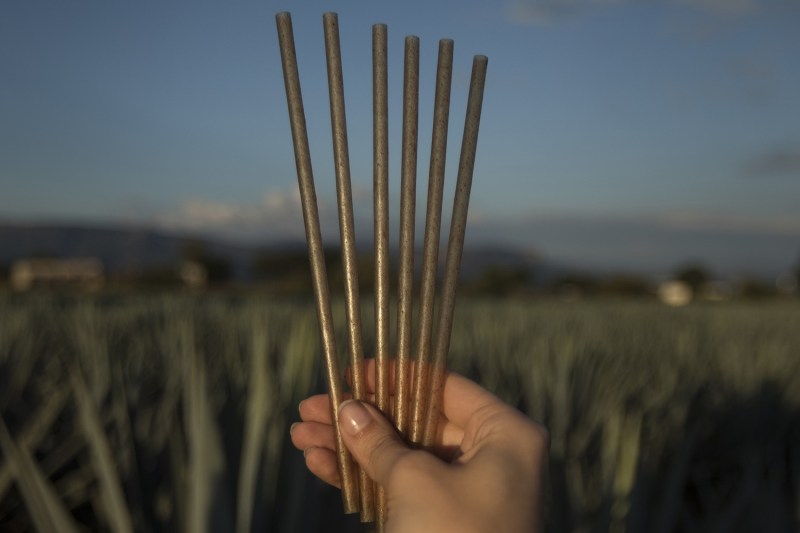
Sustainability in the cocktail world is an important issue these days, as bars and restaurants are trying to reduce waste in preparation, execution, and presentation of drinks. Eliminating plastic straws has been one initiative many have gotten on board with. Tequila brand Jose Cuervo Tradicional, in partnership with BioSolutions Mexico and PENKA, has come up with its own idea, what it calls a “biodegradable bio-based drinking straw made from upcycled agave fibers.”
The initiative falls under Jose Cuervo’s new Agave Project, which is focused on sustainability of the land and people of Tequila and Mexico by using agave in different ways.
“The past, present, and future of Jose Cuervo is tied directly to the agave plant – without it, we would not exist,” said Alex Coronado, master distiller and head of operations at Jose Cuervo, in a press release. “As the tequila industry worldwide booms, it is our company’s responsibility as the leader to take care of the agave plant and ensure that we are producing tequila sustainably. It takes an average of 6 years to grow an agave plant before it is mature enough to harvest for tequila production, and we have to be committed to finding more ways to use the agave fibers once that process is complete. The debut of our biodegradable, agave-based drinking straws is a new step in utilizing the full potential of this very special Mexican agricultural product.”
The idea behind the straws is a good one, even if there are more sustainable alternatives, i.e. paper straws. One complaint about that type of straw, as silly as it might seem in the face of climate change and global climatic catastrophe, is that paper straws can be hard to use because they often get soggy when drinking through them. The Cuervo straws are meant to more closely mimic the mouthfeel of plastic straws, however. They are partially made from the leftover agave fibers that are essentially waste from the tequila-making process. Cuervo says these fibers will replace about one-third of the polymers used in traditional straw production and they will decompose 200 times faster than regular plastic, meaning they will biodegrade in one to five years in a landfill. The actual makeup of the straws, according to a representative for Cuervo, is as follows: 30% bio-based PolyAgave, 69& polypropylene, and 1 percent biodegradation additive. The straws will be available next year at bars and restaurants, as well as at events hosted by Jose Cuervo.




